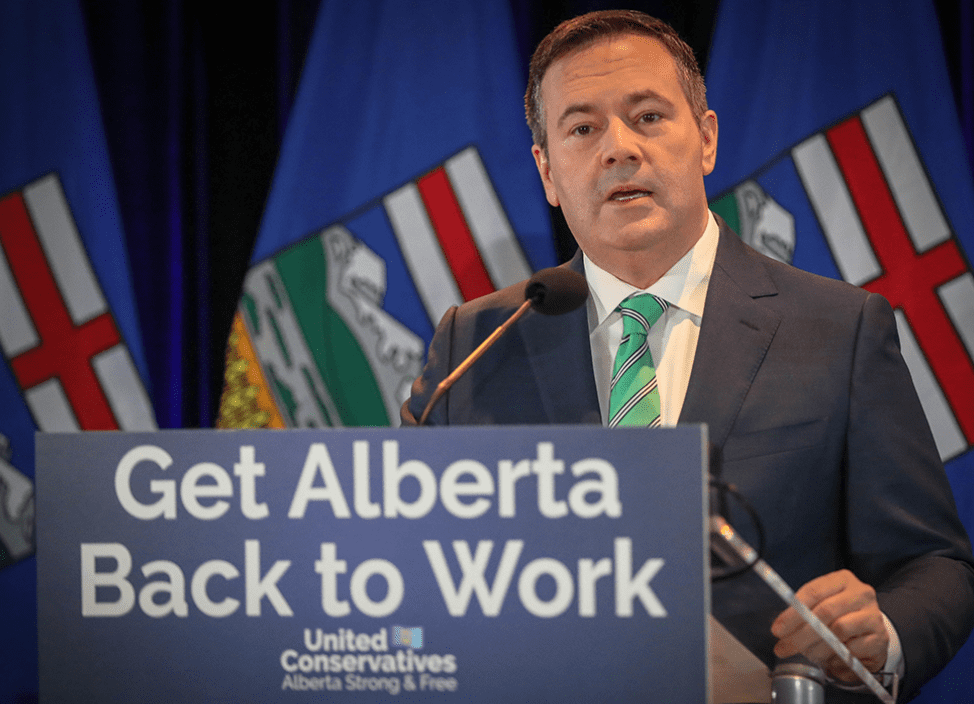Jason Kenney has vaulted into the Alberta premier's chair after a long campaign driving a bright blue gas-guzzling pickup truck around the province while promising a renaissance for the oil and gas industry.
He proposes to get those pipelines built and to punish jurisdictions, such as British Columbia, that might try to stand in the way, with turn-off-the-taps legislation. He will battle the federal government in court over carbon tax. He will establish a war room to counter the anti-oil claims of "foreign-funded" environmental groups.
But the campaign, built on the deep yearning of the electorate for another run down the oil boom road, is at an end. Nostalgia is a vote getter but it takes vision, tough choices and innovative policy to govern into the future.
If in four years the province's economy is still as dependent on oil and gas as it is now, Kenney will have failed to ensure Alberta's future.
The United Conservative Party platform so far is leaning on a 'get out of the way' strategy to appeal to business and investors. Kenney has promised to cut the corporate tax rate to eight per cent from the current 12 per cent level. The lost government revenue from the cut will be made up for in increased economic activity, claims the party.
One of the first pieces of legislation to be introduced in the snap legislature session in May will the Open for Business Act. It institutes employer friendly provisions, including roll backs on some labour law changes instituted by the NDP government. And, taking a leaf out of the Ontario Conservative book, it calls for a UCP Red Tape Reduction Action Plan, aimed at reducing the regulatory burden on job creators by one third.
The UCP's big policy platform book includes lots of references to economic sectors from agriculture to tourism to forestry. Regulatory flexibility, consultation, more private sector and public-private partnership development and increased property rights are promised, all fitting with the conservative values the party believes will encourage more companies to grow and move to the province.
But the heart and soul of the UCP playbook is still oil and gas. The discussion about intergovernmental relationships revolves around forcing the rest of Canada to recognize Alberta's right to export its oil wealth. There is not a campaign speech or political rally where the word 'pipeline' does not feature loudly in the first five minutes.
Meaningful diversification over the next four years is going to take more than a tax cut. The Alberta government is going to have to display more balanced attention to other, non-energy related, sectors of the economy.
Unfettered capitalism might appeal to some business owners and investors, but the new economy requires highly educated talent that craves high standards of healthcare, education, and recreation. Young workers in high tech industries also espouse some values that the UCP is backing away from, including dramatic carbon emission reductions and sustainability.
Alberta has potential in artificial intelligence, health technology, advanced food processing, cannabis farming and processing. The UCP government needs to develop some more detail in its strategies to attract capital, entrepreneurs, a skilled workforce and innovations in those types of sectors.
Premier Kenney is faced with a tough task over the next four years. He must be prepared to start peeling the energy industry's grip off the province's steering wheel. That will fly in the face of all political conventions related to party loyalties. The UCP's strongest support in the provincial election was from Alberta's oil capital Calgary.
If Kenney lets the energy sector take up all the air in the policy room, Alberta will be stuck once again bewailing its dependency on nonrenewable resources, hostage to international oil politics and declining markets.
Photo Credit: Edmonton Journal









